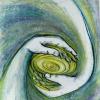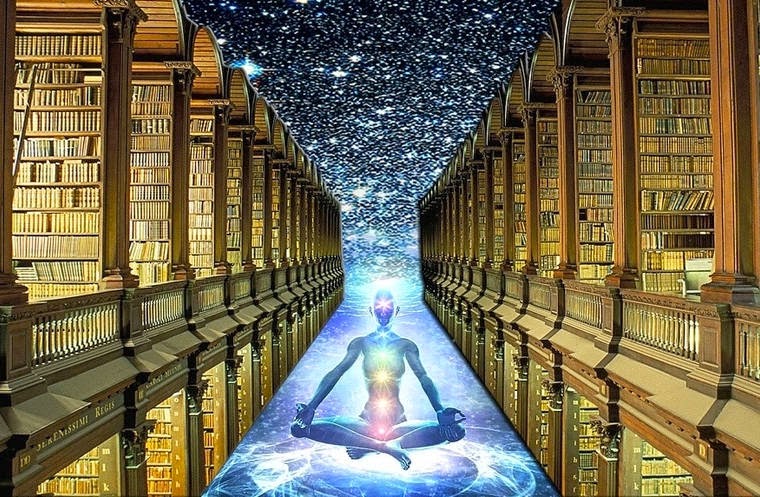 Submitted by Rev. Micah Allard on
Submitted by Rev. Micah Allard on

The average person drifts through life without sparing a thought as to its purpose. When facing problems he usually either flees from it, in which case he confronts it in another form because the seed of the problem lies within, or else he submits feebly to its occurrence. In both cases he fails to extract the teaching that it may convey to his evolving soul. Without a proper philosophy of life man lives like the lower life-forms, indulging in the lower senses and gratifying the base appetites and instincts. An improper philosophy of life is materialistically oriented--it is deemed improper because it neglects the spiritual side of Nature and because of such it fails to answer adequately the many vicissitudes and paradoxes of life that confronts man daily. What we propose is a metaphysical philosophy in which is based the Cosmic Laws and the Eternal Purpose. Such a philosophy may come about as a result of a growing sensitivity to the divine nature within--to a metaphysical awareness of the Soul. In this philosophy all of the beliefs and tenets of a materialistic way is replaced with a loftier understanding and attitude as seen from a spiritual base. For instance, science informs us that we all possess several instinctive urges that motivate our zeal for life; they may be summed-up as follows :
1) The instinct of self-preservation
2) The instinct of self-perpetuation
3) The herd instinct
4) The religious instinct
These instincts are well known in psychology, therefore we shall not take the time to explain them. We shall instead analyze their hidden, occult nature, as seen from a spiritual standpoint.
The Instinct of Self-Preservation
At a higher spiral of evolution, this primal instinct of self-preservation applies to the soul being of man where it is transformed into the evocation and preservation of one's Higher Self in one's waking consciousness. St. Paul calls this the forming of the Christ within. As man is transformed spiritually, he displaces the lower self, the false ego, with the preservation of the Real Self with which he identifies himself. Mortality is thereby transcended as the divinity of the Real Self is preserved, maintained and lived. We must be careful not to limit ourselves because of the false image or conception we have of what we believe ourselves to be. That which appears is unreal; that which is Real, is hidden. It is the archetypal image of man that God created and saw that it was good. There should, therefore, be a cessation of the identification with the unreal.
The Instinct of Self-Perpetuation
This instinct of self-perpetuation is a creative impulse that the biological being of man translates into procreation or generation. From the spiritual standpoint, creativity is in manifesting the qualities of man's innate divinity, and in expressing the divine urge to create outwardly through the mind with the symbol and tool of his will--the hands; and to internally re-create or regenerate anew the quality and life of the cells composing his organic being. Self-perpetuation, therefore, takes on a spiritual nature in which the "self" that is perpetuated is the intrinsic genius and uniqueness of the Soul expressed and moulded upon inanimate and animate matter. Mediocrity is the result of our own sense of self-limitation and false identity. Our true potential is realized by giving up this false state and expressing what really lies within our spiritual nature. Self-depreciation and exaltation of the lower self simply shuts out the light of our Higher Self.
The Herd Instinct
Gregariousness, or the herd instinct in the lower being of man is the desire to socialize, to identify himself with others like himself. This instinct gives rise to the old proverb, "bird of a feather flock together." Man has been called a social animal, and in this propensity towards others of his kind lies the underlying, unconscious spiritual urge to be one with Nature, to unite with God. Spiritually, man seeks unity with the Source of his being, to identify himself with something greater than what he believes himself to be. Not realizing the purport of this instinctive urge, man seeks outwardly for that which can only be found within. Relationships with individuals, with groups, with clans, with others of like creed will fail to satisfy the Soul-urge, for all that which is external to man is ephemeral. Transcending mob-consciousness is the way towards attaining superconsciousness. Man seeks to unite with God for he senses a certain "separation" from his Source, a certain void in his heart. A sense of separation ascribes to us all the opposite virtues of the Supreme Being--its power, wisdom, and love. We falsely see ourselves as mere humans, weak, powerless, finite, limited, mortal, and wisdomless. Nothing less than the "mystical union" with the Universal Being will bring man true peace, happiness and contentment. In order to enforce this sense of non-separation from God, one ought to think, speak and act as though we were one with God. Affirmations and decrees such as "I and my Father are one" are of great aid.
The Religious Instinct
Carl Jung proposed that man possesses a religious instinct which motivates him to recognize, or to believe, and be devoted to something higher than himself in which he has come to call "God." Basically, this has a similar meaning with the spiritual connotation, interpretation and application of the herd instinct. It is actually the urge to evolve, to progress to a higher state of consciousness. Animals, plants and lower life-forms move along the currents of evolution in an unconscious manner. Lacking the mind-principle and the force of the will, they are unable to participate in their own evolution. Man, however, has all the tools, the faculties in his possession to take part in his return to his "Father," like the prodigal son. We believe that either this instinct has been misnamed or else it has been misunderstood, as it has perpetuated man's bondage to religious creeds. Ignorant of the spiritual nature of the religious instinct, man has created a demarcation between a life lived spiritually, and religious devotions to man-made dogmas, often praising the latter while condemning the former. Man will not fulfill God's Plan so long as his devotions are directed to maya, glamor, and illusions rather than to Truth. Man's present form of worship is directed to an idea, an image of a belief. There is no true knowing by experience of what he worships. Unless he turns towards that which is Real and reflects it in his life, man is not truely being "religious." Instead of humanizing God, we should spiritualize man.
Understanding the primal instincts to be spiritual urges and laws with a metaphysical application enriches one's personal philosophy and attitude towards the purpose of existence. A philosophy of life should be based on Truth, based on the Laws of the Cosmos that brought the solar system into being. Spiritual laws unfold man's awareness when applied, and an understanding of those laws gives man a greater direction in life, a greater sense of unity with Nature and a responsibility to life as a whole. There are many Cosmic laws that man should incorporate into his philosophy of life and turn into principles of living. Laws of Love, of Harmony, of Justice, Beauty, Cooperation, and Service, for instance, provides man with enough material to expand his awareness to embrace the Cosmos. Divine Laws are a manifestation of the Supreme Being . By living in accord with these Laws, we manifest in our lives abundance in a material and a psycho-spiritual sense. It is these Cosmic Laws that the spiritual counselor should teach all those that aspire to realize, to be, and to become their Real Self.
By Lee Leonard (Luxamore)
Read more at: http://www.indotalisman.com/awareness.html
- 903 reads